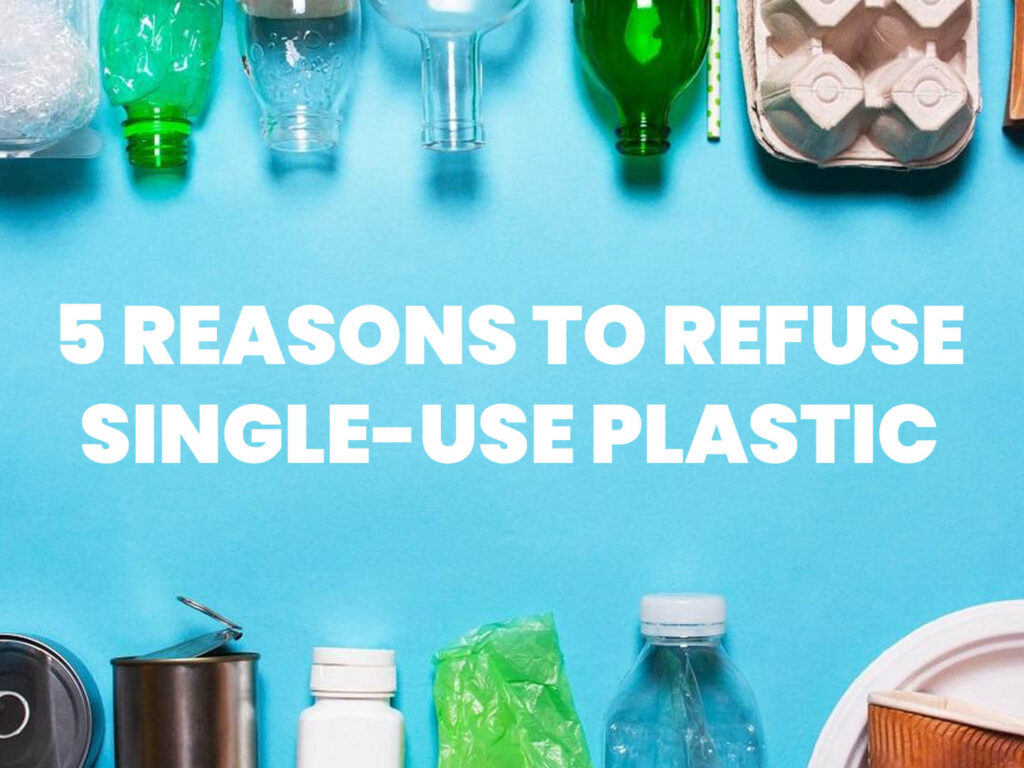Consider this: every piece of plastic ever created is still somewhere on the Earth’s surface or under the surface. From teeny tiny bottle caps to huge size automobiles, spaceships, and even surgical devices are all part of it. It explains why plastic is the most widespread kind of pollution, found on the highest peaks and at the ocean’s deepest depths.
However, many people use it for one-time usage because it is affordable. Single-use plastics, on the other hand, are suffocating our natural ecosystem. It is our responsibility to say no to single-use plastics.
Single-use plastics, often known as disposables, are used just once before being discarded or recycled. They are easy to use yet convenient, yet they cause long-term hazardous consequences.
Did you know that it takes around 450 years for plastic to decompose? And billions of bits of plastic is clogging up our oceans and rivers while also building upon the land?
According to researchers, there will be 12 billion tonnes of plastic garbage in the natural environment by 2050.
Reasons To Say No To Single-Use Plastic
Although there are numerous reasons to ditch single-use-plastic the five main reasons are:
1.Hazardous Additives of Plastic
Plastics are produced from refined crude oil and contain compounds such as BPA (Bisphenol-A), which serve primarily as plasticizers for enhancing the durability and flexibility of the material.
BPAs, Plasticisers, and Flame Retardants are the most prevalent additives found in plastic. Plasticizers make PVC more flexible, whereas BPAs are frequently used in food and beverage products.
While this makes plastic highly convenient for everyday usage, it also poses a severe health concern, particularly when it comes into contact with food. Chemicals from the container can seep into the food when plastic is used to store, heat, and eat such food.
2.Plastic Does Not Decompose
Plastic is not biodegradable. It means that all of the plastic that has ever been manufactured and ended up in the environment is still present either in landfills or in oceans. Plastic does not decompose, and as more and more is discharged into the atmosphere, there is a build-up or accumulation of plastic.
So, what happens to the plastic that ends up in the oceans? It collects in particular areas due to rain, wind, or ocean waves, but some of it may simply remain in areas as it is.
3.Hardly Recycle
Plastic manufacturing began around 70 years ago, yet more than 9 billion tonnes of plastic have been consumed since 1950. Only less than 10% of all plastic ever produced has been recycled.
4.Substantial Carbon Footprint
Emissions from the manufacture and use of plastics might have a significant carbon impact. The small fragments of plastic are even floating in the air, contaminating the ecosystem with their carbon footprint (LDPE or PET, polyethylene). Carbon dioxide is produced via dumping, composting, recycling, and incinerating.
5.Harmful to Prochlorococcus
The development of one of the world’s most essential microbes, Prochlorococcus, a marine bacterium that produces one-tenth of the world’s oxygen, is harmed by chemical leachates from plastic bags.
Conclusion
We can not go plastic-free in a blink, but we can surely take steps to avoid single-use plastic. You can do a few simple things to reduce the proportion of single-use plastic being consumed. Here is a list of EASY lifestyle changes that will make you considerably more environmentally conscious.
Use your shopping bags every time you go out for a grocery run or shopping — there are a variety of bags to choose from. If possible, avoid single-use plastic bags in favor of cotton, canvas, silk, bamboo, or jute bags. Avoid single-use plastic like disposable plates, cups, plastic straws, plastic bottles, and even plastic food wrappers. Jute bags are the most incredible option since their production is less harmful to the environment, yet they are sturdy.
Cutting on little single-use plastic will result in a significant impact. Let’s join hands to make this planet Earth a little safer just by being responsible. For more details about plastic, its current trends, and details, follow Polybol blogs to stay updated.

